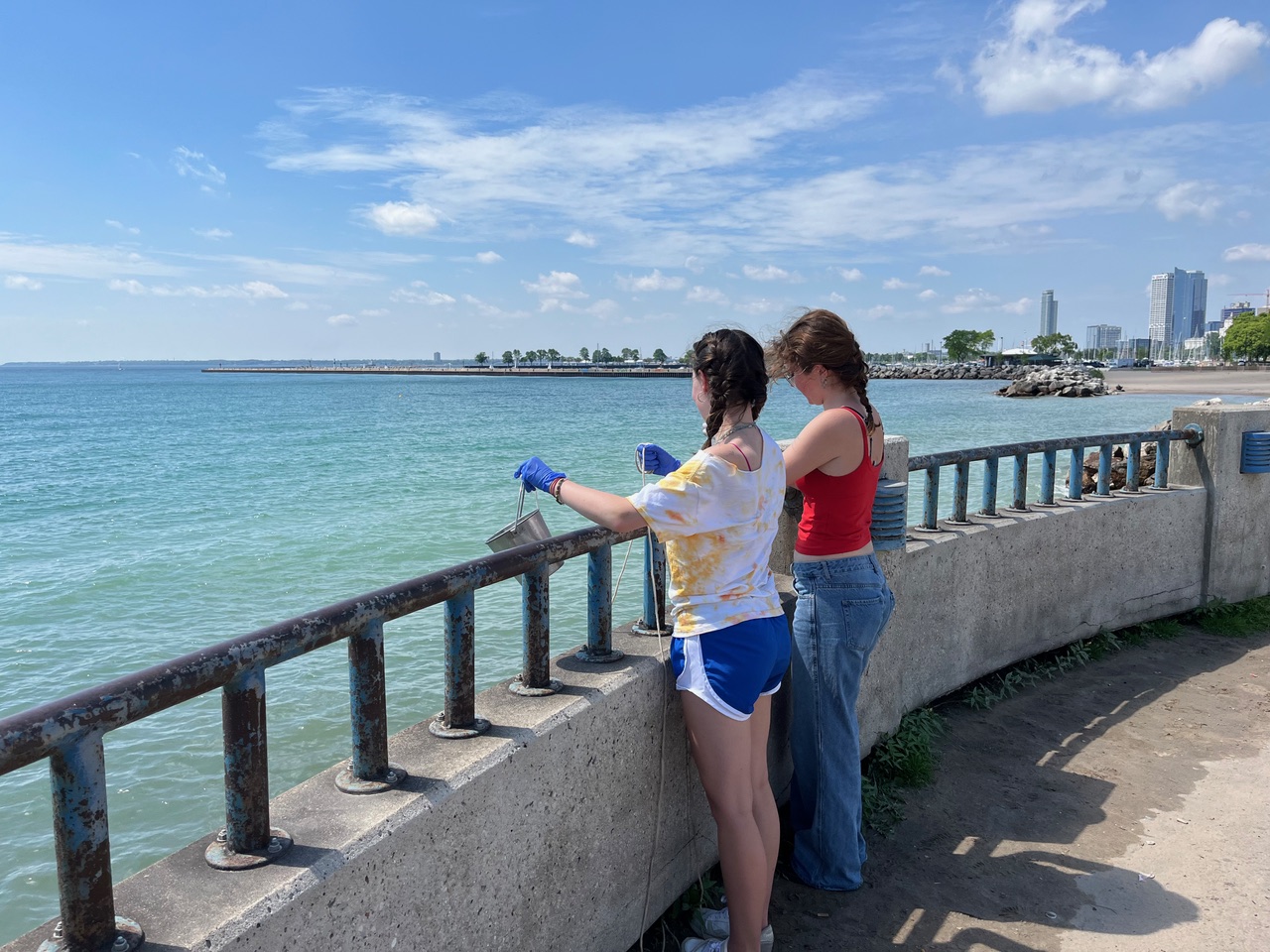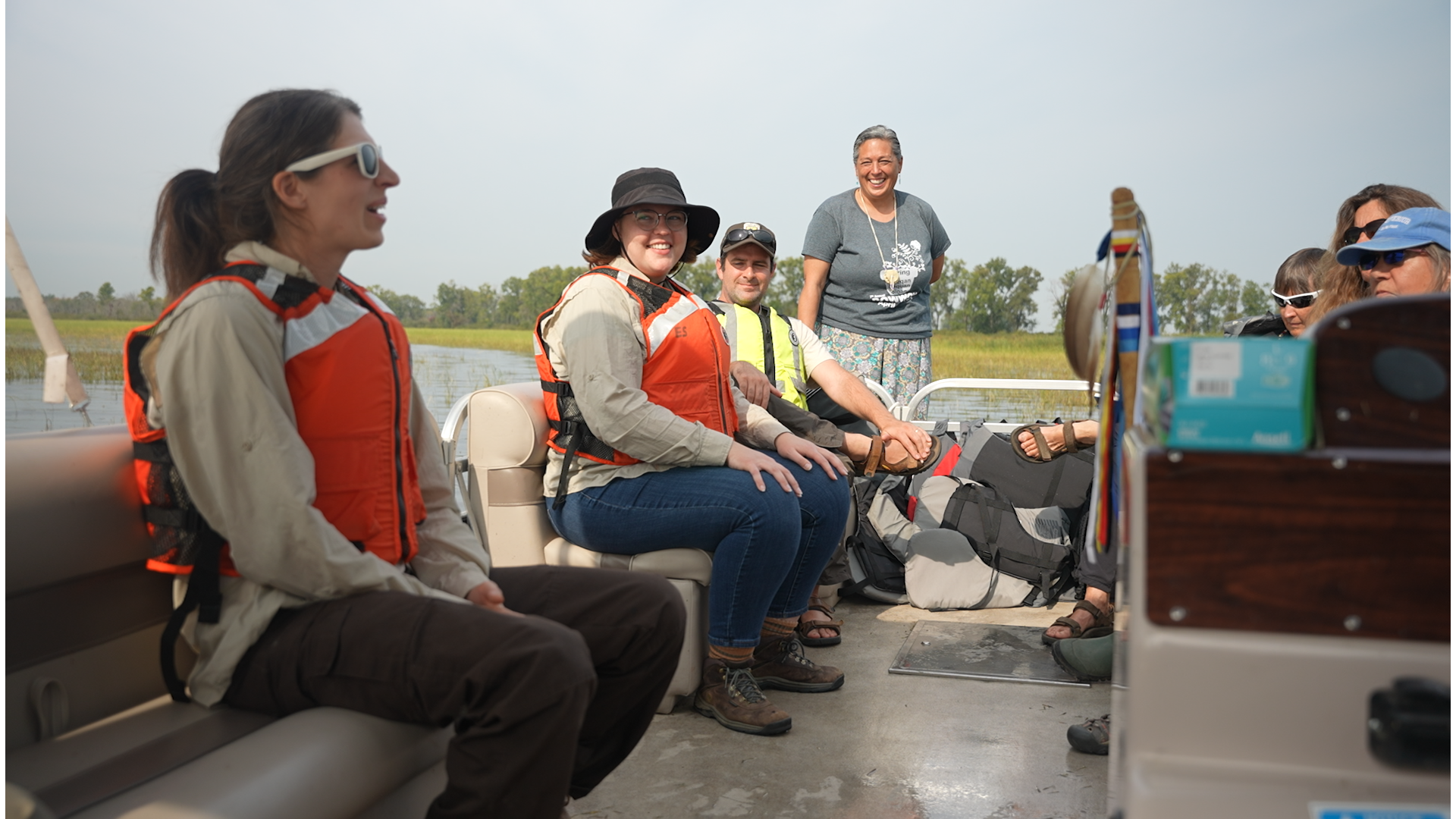Two Wisconsin teachers will join a dozen others from around the Great Lakes on a week-long research cruise on Lake Ontario with scientists. Aboard the Environmental Protection Agency’s R/V Lake Guardian for a Shipboard Science Workshop hosted by the Center for Great Lakes Literacy, the teachers will learn the techniques scientists use to study large lakes.
The research cruise departs from Buffalo, New York, on July 9, ending in Youngstown, New York, on July 15, with stops in ports along the way to learn about the ecology, history and economy of the lake.
The teachers are Carly Ziegler, a science curriculum developer for Isthmus Montessori Academy Public in Madison, and Zachary Rozmiarek, a fifth-grade teacher at River Crest Elementary School in Hudson. They will live and work alongside Great Lakes scientists to collect zooplankton, phytoplankton and bottom-dwelling organisms in addition to taking water samples and testing them.
The teachers plan to bring their new knowledge back to their classrooms and school districts.
“I’m interested in learning what the focus of research on the Great Lakes is right now and how I can take that research and bring it into my classroom in a way that’s exciting and engaging for my students – what questions do they have that we can work on answering?” said Ziegler. “The beautiful thing about lake science is, all you need to do is be by a lake and you can do it. There are so many questions we can ask about how humans impact our lakes, about the resiliency of lake ecosystems, and their future and their past. It’s pretty easy to engage kids in lake science.”
Rozmiarek, a former interpretive ranger for the National Park Service in the Apostle Islands National Lakeshore, is planning to combine his previous field experience with the cruise experience to help his students next year.
“The opportunity to travel and meet other teachers and collaborate with them, doing something that’s environmentally based, as well, really got me interested in the cruise,” Rozmiarek said. “I think a big thing is just sharing the hands-on experience that I’ll be getting, like working with the park service, with my students. I’ll be pulling my experiences into my lessons.”
Rozmiarek says his school has run a program in the past where the children raise trout in tanks in the classroom and then release the fish into a local river at the end of the school year. Several issues kept the program from happening this year, but he hopes they will be able to raise trout next year. “A lot of the things we’ll be using during this workshop sounds like they could relate nicely to what we will teach about the trout,” Rozmiarek said.
Both teachers are looking forward to connecting with other teachers during the cruise, which caters to fourth- through twelfth-grade teachers and informal educators throughout the Great Lakes.
“I’m excited to connect with educators who clearly believe that science is more than a collection of facts and ideas,” said Ziegler. “Being around science teachers whose focus is the next generation science standards . . . I’m excited to hear about what they’re doing and what cool ideas I can borrow or build off of, and how we can build a professional community around real science and education.”
The Shipboard Science Workshop is coordinated by the Great Lakes Sea Grant Network and the U.S. Environmental Protection Agency’s Great Lakes National Program Office. Funding comes from the Great Lakes Restoration Initiative.
To follow the teachers during their cruise, access the 2018 Lake Ontario Shipboard Science blog posts on the Center for Great Lakes Literacy site.





